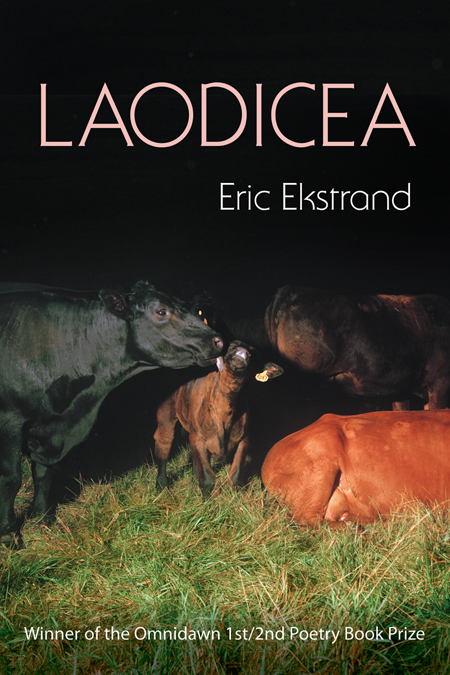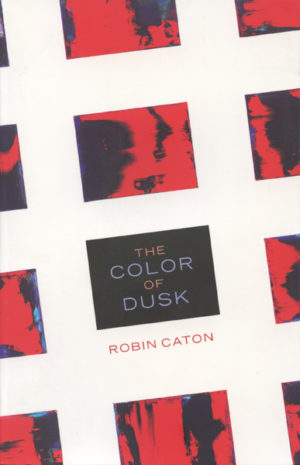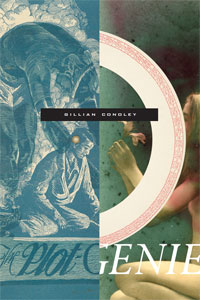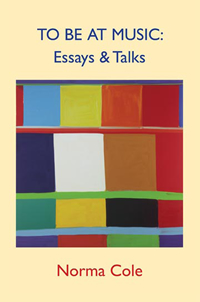Description
Winner of the Omnidawn 1st/2nd Poetry Book Prize
Selected by Donald Revell
Ekstrand’s Laodicea speaks English sympathetically at the edge of sense, where this world reveals another latent; and this world remains ordinary, just like we like it. “That he is and agent / Of sexual dexterity, is a fact / Proven through his skies’ // Fanlike and nonmaterial shrines / To pinks and the desirous / Thistles of women.” In a time when we are told, amazingly, the universe is math (and where is that?), what does that mean for our friendships, for our language? Through virtual landscapes, biography, social interest, and religious imperative, Laodicea reminds, laughingly, that “The mind and the world / together are a Co-Cathedral”—the impulse for love and for play.
In the new and nearer Laodicea, Eric Ekstrand sets his margins moving and finds a center everywhere his loving eye alights. Naturally, given the exigencies of our own bad empire, his concerns are tender and keen for flesh, for shrines in the flesh that undisguise the blasted shrines of these United States.
Donald Revell, Judge of the Omnidawn 1st/2nd Poetry Book Contest
“Laodicea” invokes the Christian sect of whom John said, in Revelations, “I wish that you were cold or hot.” The level speaker in Ekstrand’s poems is one of a rootless community of youthful artists and strugglers, somewhere in Walt Whitman’s America in a parish so static that to read the paper—“Theft at Furches’/Evergreen Warehouse in West Jefferson;/Desirable Black Mountain Subdivision/Burns” is to conclude that “Purlear must borrow its news.” The search for meaning requires a light heart: “I have been here/at the fake Parthenon/in Nashville/because we both love it/…You were always wearing gladiator sandals.” Amid the inauthentic, the pastiche, the absurd and the hilarious, it would be natural to feel somewhat ironic and lukewarm toward the world. But far from it: the affection between these speakers and their cohort tells another story about the durable ideal of friendship, which is always romantic. Love poems to one Hannah, reminiscent of Frank O’Hara’s poems to Grace Hartigan, are the apex of Ekstrand’s collection: read “The Legend of the Musk Deer” through to its surprising and beautiful conclusion and tell me it doesn’t belong with “In Memory of My Feelings” as a monument to the unruly impulses caught between passion, compassion, and sublime disinterest. The fact that Ekstrand is more quiet and contained than O’Hara only makes for a slower burn—but make no mistake: his poetry has the bright white flash of a magnesium firework.
Ange Mlinko, author of Marvelous Things Overheard
As dramatically as any young writer I know, Eric Ekstrand has invented a deeply original poetic language, an idiomatic grammar which opens strange kaleidoscopic views of the familiar world. His poems are pastoral landscapes in which social realties, flowering dogwood, and linguistic coinages are intertwined with a Gnostic chattiness, landscapes in which “The golden dog pauses / valueless among the muscle / of the word rhododendron,” and wallpaper lotuses “sit like ladies / sit for yoga at the Y / —unsupressed.” Ektrand’s poems are intricate, wondrous, funny, contemplative and preternaturally wise. They excite and awaken me.
Tony Hoagland, author of Twenty Poems That Could Save America and Other Essays
About the Author
Reviews
Excerpt
Eric Ekstrand lives in Winston-Salem, North Carolina, with his husband, Danny, and his father, Ken. He teaches writing at Wake Forest University. He is the recipient of a 2009 Ruth Lilly Fellowship awarded by The Poetry Foundation and graduated from the University of Houston with an MFA in Creative Writing in 2010. He is a former poetry editor of Gulf Coast:A Journal of Literature and Fine Arts. His work has appeared in Poetry, jubilat, Indiana Review, Black Warrior Review, Bat City Review, and elsewhere.
A brief interview with Eric Ekstrand
(conducted by Rusty Morrison)
It is for Omnidawn a great pleasure that Donald Revell selected Laodicea as the winner of our 1st/2nd Book Prize. As one of the blind readers who screens work for this contest, I recall feeling immediately that this writer’s voice was uncannily new yet imbued with the poise of a poet who had the means to speak, with great immediacy, for generations, and to generations. I want to begin by asking about how you developed the arc of this manuscript of poems, which are fiercely humorous, finely balanced, urgent and gregarious. You begin with the epigraph:
with an invidious Eye on human Felicity, and to have a Delight in overturning it.—H. FIELDING
And then, the first poem begins:
An animal, it is the premise
Of an animal where nothing
Is fullform. If you have here
And here a nemesis,
Then you have two frames
Over which the total lusts
And bodies of animals
Have almost been laid.
They enter rooms
As inexactly as anxieties
Or children. It is much more
Like a nemesis that the ancients
Chiseled there every abstract
Polyp on totems and every
Generalized hair.
…
I have quoted quite a few lines of the first poem, but I do so in part to allow our readers to pleasure in the directness and simplicity of your syntax, which (thanks in part to intriguing enjambment) actually heightens the complex subversions of your selected figures. But, let’s start with the question I asked. Can you speak to the arc, the design of this manuscript? Few writers brazenly delight in testing, in teasing, their epigraphs in this way. In a sense, this is a perfect lens to view the myriad ways in which you masterfully massage message as you amass meaning.
It is nerve-wracking to think of oneself as speaking for and to generations! But I feel very at home playing the “brazen tease.” So teasing the epigraph is a good way to put it, I think. I read this Neo-Freudian who suggests our neurosis is actually what makes us juicy. Our wisdom and our screwed-up-edness are wound up together forever. This is an old idea, that one could actually worship unwieldiness. The Nemeses delight in overturning—that’s a given—and we can either resist that and be anxiety-ridden yucks (I think of the “poor unfortunate souls” in Disney’s Little Mermaid) or we can delight with them. If there is a God of Abraham and Isaac, one thing we can count on is that He is not changeless. People keep saying that He is, but I really see no evidence for it. Lemony Snicket in his notes to Jonathan Safran Foer’s Haggadah says that God doesn’t seem to follow His own plan. If that’s true, why should we resist? It is endlessly frustrating to try. I think this is my interest in other people. Relationships skillfully embarrass any fixation. That is why they are so great. The “Nemesis” poems are really a way to talk about the social, so are most of the poems in the book. The Harold Hayes poems are part of that idea as well. Beyond these preoccupations, I’m not sure I can speak to a design—I just seem to keep talking about the same things. I really think about the book as purely a collection. It boils down to what I did for the last six years arranged in a vase.
Few writers are able to shift judiciously from allegorical aphorism to actual experiences that demand of a reader political reckoning. I think of the courage and cadences of poets as uniquely ‘themselves’ as Brenda Hillman and Robert Pinsky. While so different from each other, there is, nonetheless, something in each of their works that I find resonant in your poems. Let me ask you about poems like “Hedonic Tone Assessment,” which you note is set in Wilkes County, NC 1901, and begins
is to be thorough.
The town, itself,
is a deficit
and New Hope Baptist Church.
They don’t beg, which is one way embarrassment
can look like virtue.
Every house is hindered white,
contrived directly
on the dirt
with no mediary bush to the lot.
The women don’t look
any particular way.
…
Can you speak to your process, your relationship to the material, and how you take facts, navigate such specific terrain, and then turn what seems simple statement to such complex effect. One of my favorite moments is
I suppose the more researched, (and I use that term lightly), poems—the Harold Hayes poems—were a way to talk about myself by way of talking about someone else, if I’m honest. I am the rare combination, (though maybe not so rare for poets), of evasive and self-centered. I work one floor below where Harold Hayes’ papers are kept and I would walk up on my lunch breaks and read through them. The librarians were nice enough to keep the boxes out for a few months at this little desk off the entrance to special collections. I had recently come back to teach in Winston-Salem, where I grew up, and these papers were a way to distance myself enough from the place to remember it. Hayes grew up in the area, though he moved around a lot, and he went to Wake as an undergrad, though when it was in Wake County just before the college relocated. And what came up when I began to write besides getting at the physicality of the place, was class and race and religion. Maybe these are what always come up when you push on the south. I don’t think the poems ended up being highly theoretical, or that I’d cast myself as a political poet, but part of the material of the poems was the characters’ circumstance, and maybe that is just inherently political. As for “turning simple statement to complex effect,” I’m not sure I have a lot to say besides, “Thank you.” You know, when I answer questions like this, I always want to point out that I’m talking about results and not intentions. Maybe it doesn’t need to be said, but of course this kind of conversation is always after-the-fact, and I never feel like I particularly own a poem. Why it is a certain way as opposed to another, I don’t own that. I could quote all the people you might expect: Spicer, Blake, etc. I do, though, feel responsible if the poem fails or harms. I’m not ethically exempt. I think a pretty reliable rule might be that poets could take most of the blame and little of the praise.
Would you speak to your choice of title for this collection of poems? As Donald Revell writes in his insightful introduction:
I sense strongly that the title’s allusive power is a touchstone for you as writer; could you speak to the ways that its meanings may have influenced you differently (more or less directly) in different sections of the manuscript, thus playing a part in adding complexity and altering the constellation of the work. I’m also curious what poems in the collection were the greatest risk to write, and/or to bring into this work? What beliefs or values were at stake for you in the most challenging poems?
Mr. Revell spoke eloquently about Laodicea’s history, biblical position and the figurative use I attempted. As a title of a book, it is hard to say and nobody knows what it is at first, so I appreciate his rescuing of the title for me very much. I suppose that I could add that I feel personally implicated in and critical of lukewarmness as a habit. Rarely do I feel clarified or adamant. Rarely do I feel intentionally kind. Most of the time I am half-attention. I am jealous of Paul, because he at least takes the rhetorical position of clear, ethical direction. Paul, it should be said, can also be a real jerk. I want my poetry to be a stay against confusion, but often I find it is the confusion too. If I am accusing America, or Empire of anything, it is an empire built in me, with me, for me; that I also only want to distance myself from. That’s where Laodicea is.
As for the riskiest poems to bring into the work—those would be the poems written to my friends Sean and Hannah. They have both seen the poems and know they are in the book, but I suppose I am most nervous about them because they are the ones that are about particular real people and our particular real friendships. I thought a lot about whether to include them: I wanted to share what I love about those two people during and after some really hard times, but the poems ultimately feel very private to me and perhaps they shouldn’t be for everyone to see. A lot of good poetry is public-private, but some poetry is private-private. It’s hard to tell which these are, and I worry that I could’ve gotten that one wrong. If I did, I suppose I will find out the hard way.
Who are the authors with whom you feel a kinship? Can you speak to the ways that any of them might have influenced this work? Who are you reading currently?
Oh, more than I can say. You know, I am reading Sontag with my essay class right now and she says “one becomes a writer not so much because one has something to say as because one has experienced ecstasy as a reader.” More than a writer, I think I am a certain kind of reader. Pound and Eliot keep reminding us of this, (even as their education becomes tedious). It’s one way to talk about how we receive language by writing. As for influence: early on, it was Stevens for his play and Bishop for her crustceanity. You might not know it by reading me, but Stein is huge. Black Mountain is just up the road, so I’ve been fascinated by Olson, Creeley, Levertov, Duncan—the whole gang. That anything could happen in NC that was literary, was so exciting to realize as a young guy. I visited Black Mountain on my way to see friends in Asheville once and the college is defunct and now operates as a Christian camp. I was walking around looking wistful, I’m sure, and a concerned counselor asked what I was doing. I told him and he took me to the office to show me a bunch of old photographs and letters and books that they’ve collected that were left behind. It was really lucky. I don’t know if anyone knows they are there. And AR Ammons was important. In the English department lounge at Wake where I teach and where I went to school, they keep Ammons’ typewriter in a sad little corner. People rest their plastic wine glasses and napkins of cheese on its Plexiglas cover. I admire Ammons’ willingness to remake himself. Each poem can be a fresh experience. There isn’t allegiance to much and especially not to a former way of making. Berryman and Levis were being passed around a lot in Grad. School and I think they must have gotten into me somewhere. Perhaps some of the pretense of Berryman for better or worse. Some younger poets I love: Paul Killebrew, for sure, and Cathy Park Hong, and Joe Hall, and Ed Skoog and so many others. Right now I’m reading Dugan for the first time. I’ve asked for Golding’s Metamorphosis for my Birthday. In prose, I’m reading this great book by my colleague and former teacher Jim Hans on the irrational Socrates and also The Phenomenon of Man. That’s the really heavy stuff I’m reading. I also just finished The Fault in Our Stars in the interest of full-disclosure. Someone else who was really important while I was writing some of the later poems in the book was WS Graham. I think I take a good deal from him. I’m not sure many people know him here, so I try to advocate when I can. I first heard about him when Mary Ruefle gave a reading at The Museum of Printing History in Houston. She bent over the dais and read a poem by him that was pretty dizzying. I think it must’ve been from the earlier stuff when he was obsessed with Thomas. Oh, and Mary Ruefle!
Would you tell me a bit about yourself? Anything you are willing to share that might not be in your short bio that is published in the book?
I live with my father and husband (that’s in the bio), but we operate as a good little unit and it’s who I spend most of my time with when I’m not teaching. We watch British crime dramas a lot, and I wish we’d watch more comedy, because I am easily horrified. The British are less afraid to be grotesque, they are less violent, but more macabre, if that’s possible. Danny makes a little pallet of blankets and pillows on the floor every night and the dogs make weird sounds. I spent a summer in college interning in Chicago at Poetry, which was the best thing that I think ever happened to me. I was very shy, but I loved it. I stayed in a hostel for two months (against the rules) and my room had bed bugs so we had to burn all the mattresses and I had to freeze my clothes. I was lonely also, but it was so exciting to be in those offices. I learned so much there. Chris Wiman let me sit-in on an editorial meeting, and the editors actually listened to whatever my little opinions were. They were very kind to me and Chicago is still a favorite city. I sing in a choir, which I love. I’m not the best voice, but it is so great to make music with other people. I have a green bike that I ride to school when I can. It has a basket and a leather seat and it’s all very twee and “professorial,” but I love it! I love the Pete Holmes and Duncan Trussell Podcasts. I listen to them when I run, which I try to do as often as I can. I’ve recently gotten into natural running after a forefoot injury. Let’s stop there!
You were actively involved in the selection of the image that is used in the cover design for this book. Would you describe the search, your hopes for the cover image? How this cover may fulfill your desires, intentions?
My friend, Jennifer Ray, a great photographer and teacher offered all of her work for me to pick from, which was so generous. I thought Jennifer’s work had resonance with mine because it is often in the genre of these weird pastorals that I work with as well. There is an unnerving quality to the pictures, but also something a little sweet: like the mother cow is kind of kissing the screaming baby cow in the dark. I suppose I see it doing similar tonal work. I’m sure my choice is also connected to my love of Jennifer as a person: she is so kind and confident! I wish you could know her.
Ekstrand’s debut collection is a slow burn in which poems dance around the idea of apocalypse, both literally and metaphorically, as they build on what has come before and provide a grounding for what comes next.
The book’s most conspicuous motivation is to make poetry happen between “you” and the poem; that is to say where the line ends, your imagination cannot idle and where, deliberately, the words do not say it all, it is the reader’s mind that finishes the thought.
The Nemesis of Fineness,
Pulchit, in crewneck methyl violet
Makes imaginary worlds basic in her form.
She has a new sweater that’s well-turned.
It is a phrase that she takes on
And off throughout the day—the phrase,
“I’m ready” or its variant, “I’m not ready”—
With gentle handling. She confronts
Her want, migrating dune, as much as
A rational materialist can, mostly
By “reorienting priorities.” The standard
Bearer of the violet sweatercade that
Wastes through Nordstrom together in a line,
Called sometimes the “Nemesis of Drinking
Saltwater,” she is represented by the ancients
As a squiggle, which is water, and a spear
Of wheat that means, “craving” or “regeneration.”




